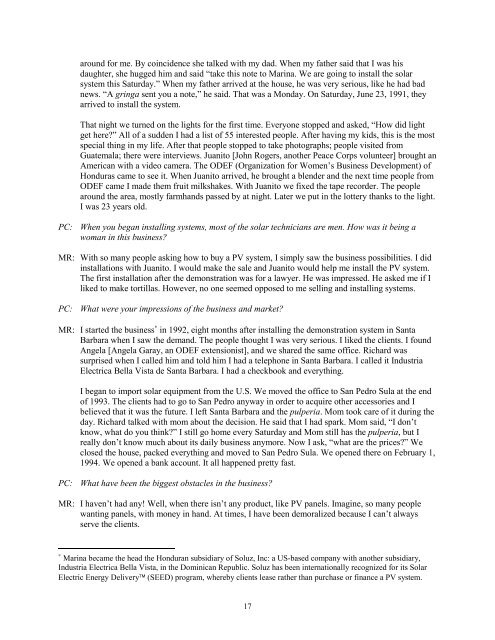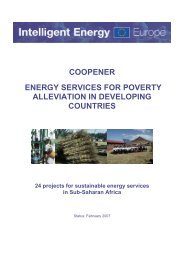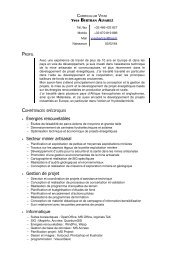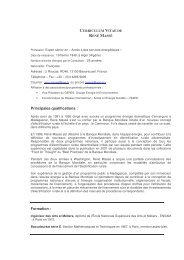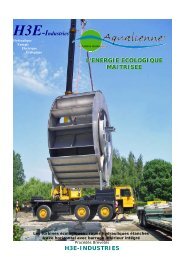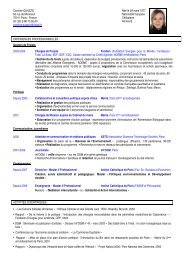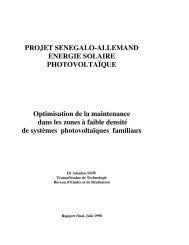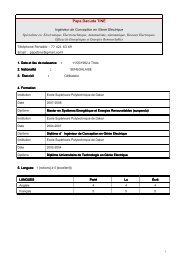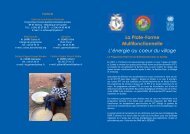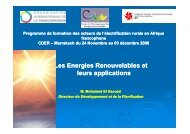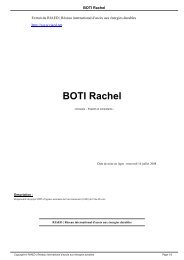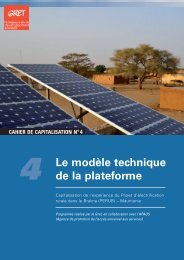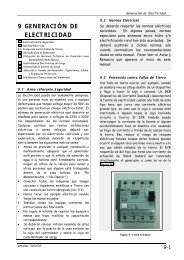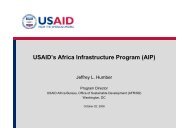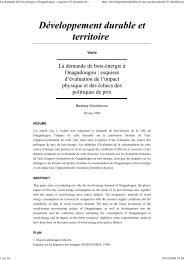Solar-Based Rural Electrification and Micro-Enterprise ... - NREL
Solar-Based Rural Electrification and Micro-Enterprise ... - NREL
Solar-Based Rural Electrification and Micro-Enterprise ... - NREL
You also want an ePaper? Increase the reach of your titles
YUMPU automatically turns print PDFs into web optimized ePapers that Google loves.
around for me. By coincidence she talked with my dad. When my father said that I was hisdaughter, she hugged him <strong>and</strong> said “take this note to Marina. We are going to install the solarsystem this Saturday.” When my father arrived at the house, he was very serious, like he had badnews. “A gringa sent you a note,” he said. That was a Monday. On Saturday, June 23, 1991, theyarrived to install the system.That night we turned on the lights for the first time. Everyone stopped <strong>and</strong> asked, “How did lightget here?” All of a sudden I had a list of 55 interested people. After having my kids, this is the mostspecial thing in my life. After that people stopped to take photographs; people visited fromGuatemala; there were interviews. Juanito [John Rogers, another Peace Corps volunteer] brought anAmerican with a video camera. The ODEF (Organization for Women’s Business Development) ofHonduras came to see it. When Juanito arrived, he brought a blender <strong>and</strong> the next time people fromODEF came I made them fruit milkshakes. With Juanito we fixed the tape recorder. The peoplearound the area, mostly farmh<strong>and</strong>s passed by at night. Later we put in the lottery thanks to the light.I was 23 years old.PC: When you began installing systems, most of the solar technicians are men. How was it being awoman in this business?MR: With so many people asking how to buy a PV system, I simply saw the business possibilities. I didinstallations with Juanito. I would make the sale <strong>and</strong> Juanito would help me install the PV system.The first installation after the demonstration was for a lawyer. He was impressed. He asked me if Iliked to make tortillas. However, no one seemed opposed to me selling <strong>and</strong> installing systems.PC: What were your impressions of the business <strong>and</strong> market?MR: I started the business ∗ in 1992, eight months after installing the demonstration system in SantaBarbara when I saw the dem<strong>and</strong>. The people thought I was very serious. I liked the clients. I foundAngela [Angela Garay, an ODEF extensionist], <strong>and</strong> we shared the same office. Richard wassurprised when I called him <strong>and</strong> told him I had a telephone in Santa Barbara. I called it IndustriaElectrica Bella Vista de Santa Barbara. I had a checkbook <strong>and</strong> everything.I began to import solar equipment from the U.S. We moved the office to San Pedro Sula at the endof 1993. The clients had to go to San Pedro anyway in order to acquire other accessories <strong>and</strong> Ibelieved that it was the future. I left Santa Barbara <strong>and</strong> the pulperia. Mom took care of it during theday. Richard talked with mom about the decision. He said that I had spark. Mom said, “I don’tknow, what do you think?” I still go home every Saturday <strong>and</strong> Mom still has the pulperia, but Ireally don’t know much about its daily business anymore. Now I ask, “what are the prices?” Weclosed the house, packed everything <strong>and</strong> moved to San Pedro Sula. We opened there on February 1,1994. We opened a bank account. It all happened pretty fast.PC: What have been the biggest obstacles in the business?MR: I haven’t had any! Well, when there isn’t any product, like PV panels. Imagine, so many peoplewanting panels, with money in h<strong>and</strong>. At times, I have been demoralized because I can’t alwaysserve the clients.∗ Marina became the head the Honduran subsidiary of Soluz, Inc: a US-based company with another subsidiary,Industria Electrica Bella Vista, in the Dominican Republic. Soluz has been internationally recognized for its <strong>Solar</strong>Electric Energy Delivery (SEED) program, whereby clients lease rather than purchase or finance a PV system.17


